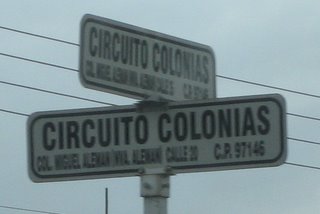When one thinks of the needs that arise after a major natural disaster, several things come to mind. In the case of floods, for example, I think of material possessions being ruined or swept away by flood waters, no clean drinking water for awhile, unavailability of food, loss of homes, and possibly the loss of life – both people and animals. Recently, the state of Tabasco was hit by major flooding. Thankfully, several people came to their aid, both from the government and through organizations. However, when we inquired concerning the needs of the people, we were told that they had received a lot in the way of provisions, but that medical attention would be needed down the road. That’s where we come in … Last week our family had the opportunity to join with fellow missionaries Paul and Sandy Kazim, medical professionals and Bible school students from the state of Yucatan in order to go to meet the medical and spiritual needs of their fellow Mexicans in Tabasco. We were hosted by pastors and church members during the 4-day trip while we focused the outreach on 2 towns that had requested help in these areas. Not only was medical help available, but our team also provided ministry for the children, youth, and adults through skits, songs, balloons, sharing of the Word of God, door-to-door evangelism, and prayer.
Upon returning to Mérida, I reviewed some of the videos and photos from the trip and would like to share a short film that hopefully captures the essence of our visit. You won’t see me since I was behind the camera, and you won’t see Dave, either, since he along with some of the Bible school students visited homes, meeting the spiritual needs of those who couldn’t come or who hadn’t heard about the medical outreach. But you will see our kids involved in ministry as they played an important role and were a blessing to many. Also, the film is set to music, a song done in Spanish. The song speaks of being available and ready to be used by God for the things He wants us to do, giving Him our time, our hands, our voice, not wanting Him to pass over us because we are available for His purposes. It is sung by Jesus Adrian Romero from his album, “El Aire de Tu Casa.” My prayer is that this short film serves as a reminder of the needs all around us and that we, through the help and grace of God, are the answer to those needs. May God bless you as you allow Him to use you.
You can view it in this post above or on GodTube.

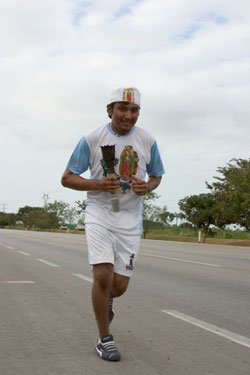 We were driving back from a planning meeting in Muna last Tuesday, where we’ll be hosting
We were driving back from a planning meeting in Muna last Tuesday, where we’ll be hosting 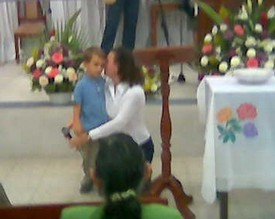 About two weeks ago, (yes, the events of our lives and ministry have taken a toll on my blogging) we celebrated the birthday of our youngest, Jonathan. It was filled with parties–one at school and another here at the house, as well as a mountain of presents, many of which have already made their way to the black hole that our boys call their closet. Of course, all of these things came as no surprise. After celebrating the 19 kids’ parties that we have, from Princess to Bob the Builder to Spider Man to Jungle themes, we’ve come to expect the anticipation, celebration, and sugar withdrawal cycle that each party brings. However, after all of the celebration was over, and Jonathan had time to reflect, he did something unexpected: he decided to testify. In fact it was such a surprise that we didn’t have our camera. The blurry picture was taken with my cell phone.
About two weeks ago, (yes, the events of our lives and ministry have taken a toll on my blogging) we celebrated the birthday of our youngest, Jonathan. It was filled with parties–one at school and another here at the house, as well as a mountain of presents, many of which have already made their way to the black hole that our boys call their closet. Of course, all of these things came as no surprise. After celebrating the 19 kids’ parties that we have, from Princess to Bob the Builder to Spider Man to Jungle themes, we’ve come to expect the anticipation, celebration, and sugar withdrawal cycle that each party brings. However, after all of the celebration was over, and Jonathan had time to reflect, he did something unexpected: he decided to testify. In fact it was such a surprise that we didn’t have our camera. The blurry picture was taken with my cell phone.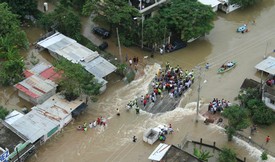 Mondays are usually a low-key day for the Godzwa family. The day after ministry is usually reserved for catching up on household items or replying to correspondence. I had a post planned about the evangelism seminars that we have been leading. But a telephone call from Paul, our mentor missionary here in Mérida, broke the routine. “Dave,” he said, “the situation in Tabasco has gotten out of hand…” The situation he was talking about was the flood that Mexican President Felipe Calderon now calls
Mondays are usually a low-key day for the Godzwa family. The day after ministry is usually reserved for catching up on household items or replying to correspondence. I had a post planned about the evangelism seminars that we have been leading. But a telephone call from Paul, our mentor missionary here in Mérida, broke the routine. “Dave,” he said, “the situation in Tabasco has gotten out of hand…” The situation he was talking about was the flood that Mexican President Felipe Calderon now calls 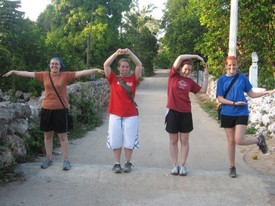 The roads in Mexico are a pleasant surprise compared to the deteriorated byways that we had gotten used to in Costa Rica. We have a wonderfully paved road outside of our home, and it has been some time since I’ve had to swerve like a slalom skier to avoid ramming one of our wheels in a pothole. However, what makes the Mexican driving experience unique are the “topes” (pronounced tow-pays)
The roads in Mexico are a pleasant surprise compared to the deteriorated byways that we had gotten used to in Costa Rica. We have a wonderfully paved road outside of our home, and it has been some time since I’ve had to swerve like a slalom skier to avoid ramming one of our wheels in a pothole. However, what makes the Mexican driving experience unique are the “topes” (pronounced tow-pays) 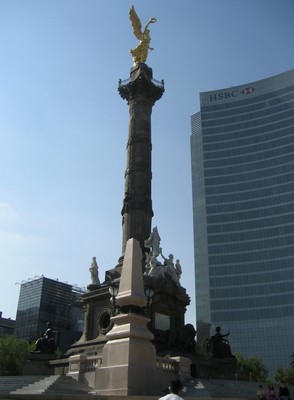 I just wanted to send out a quick update to thank those who had prayed. As you might have read in our
I just wanted to send out a quick update to thank those who had prayed. As you might have read in our 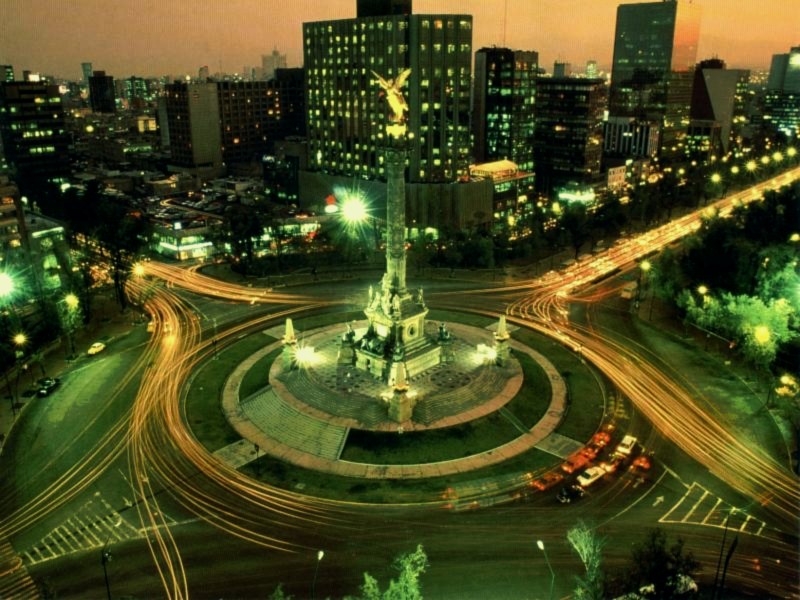 “The City” in the U.S. is of course, New York City. It is one of the most important centers of commerce and culture in the country, and, who can forget, it is also home to the best team in baseball, the
“The City” in the U.S. is of course, New York City. It is one of the most important centers of commerce and culture in the country, and, who can forget, it is also home to the best team in baseball, the  This year, the Godzwa family rang in the New Year a bit differently. No watching the ball drop in Times Square for us. We welcomed 2007 Mexican style. That meant of course there had to be fireworks, lots of them, and the traditional eating of the grapes.
This year, the Godzwa family rang in the New Year a bit differently. No watching the ball drop in Times Square for us. We welcomed 2007 Mexican style. That meant of course there had to be fireworks, lots of them, and the traditional eating of the grapes.